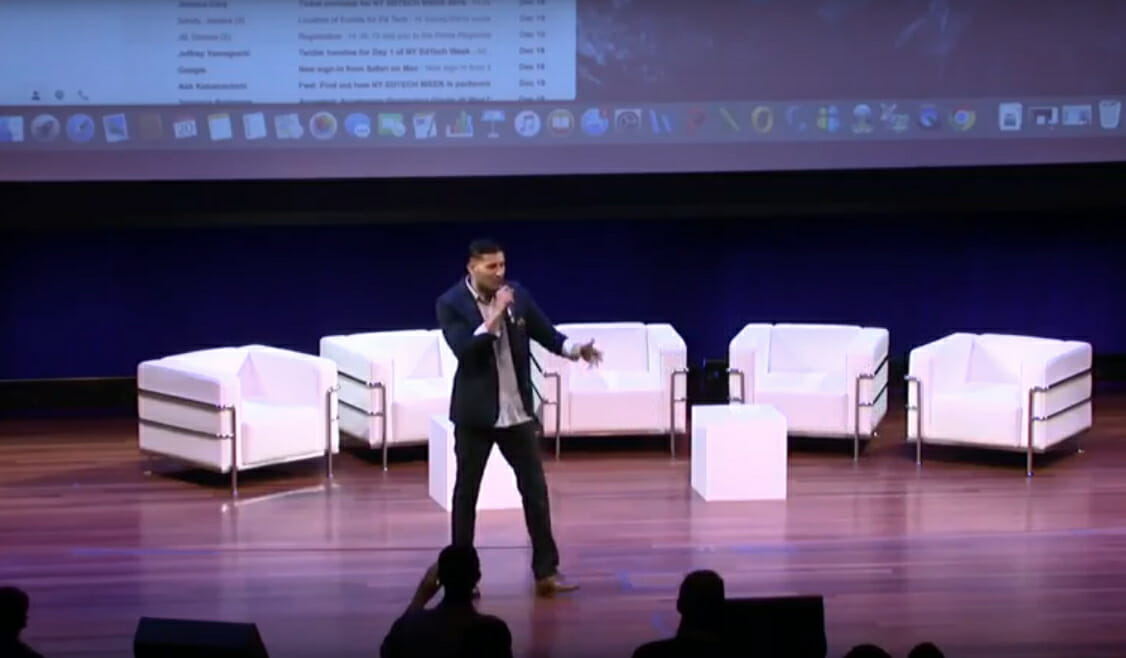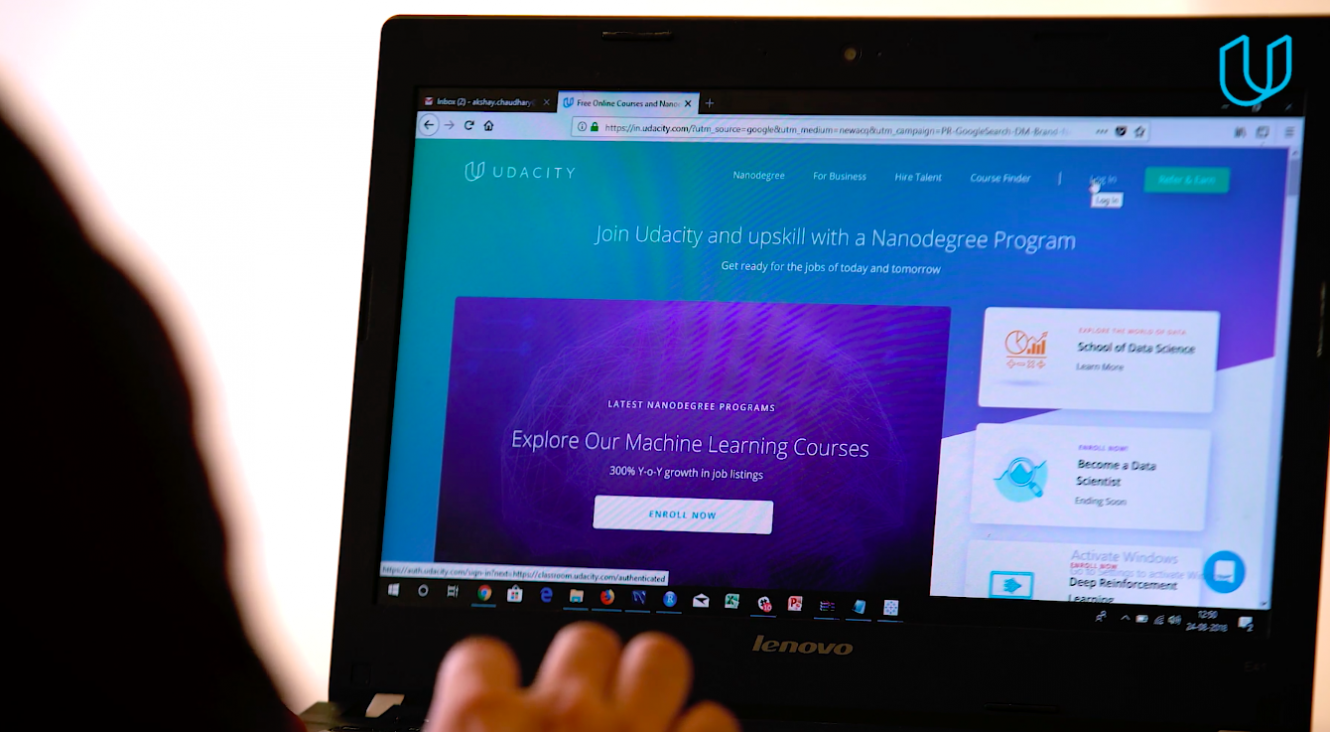
New York EdTech Week has quickly evolved into one of the educational technology sector’s largest and most important events of the year. This week, eLearningInside News caught up with Ash Kaluarachchi to find out more about this year’s NY EdTech Week festival, which will take place in New York City from December 18 to 20.
Started’s NY EdTech Week
Cait Etherington: First, can you tell me a bit about the history of NY EdTech Week?
Ash Kaluarachchi: The festival is just one part of what the Started Accelerator does. I’m one of the co-founders of a company called Started. We’re interested in solving the world’s educational problems, but we also want to turn New York into a hub of educational innovation. With that simple mission, we create incubators, accelerators, festivals, and courses and also apprenticeships for organizations. In New York, we do that by partnering with NYU.
CE: So, what is your relationship to New York University?
AK: We’re simply partners. We both care about the mission I already mentioned. Our partner is Steinhardt, which is an NYU’s school focused on culture, music, and education.
This Year’s Event Highlights
CE: A lot of the headline speakers at EdTech Week are entrepreneurs. Are educators, especially public educators also present?
AK: Yes, absolutely. Our goal is to have equal representation across the space. Our goal is to balance the conversation between innovators, investors, public and private educators, and anyone else in the educational technology space.
CE: Can you talk more about the public sector speakers you have attending this year?
AK: There are more than 130 educators scheduled to attend already, but we suspect that number will go up to about 250 by the time we open the festival. That includes superintendents, including over 20 from New York, who are interested in learning more about educational technologies. We also strive to have representation among our speakers. This is why some superintendents who we think are doing really innovative work in their districts will be on our main stage.
The Future of EdTech Where Women Lead
CE: My observation is that over the past 12 to 24 months, we have seen a huge upsurge of interest in K-12 virtual schools. Is this also something you’ve witnessed and will there be any specific questions about this phenomenon at this year’s festival?
AK: It’s an interesting phenomenon, and I’ve noticed it as well. But to take a step back from the festival for a moment, our incubator is comprised of about 120 entrepreneurs from around the world. We also run an accelerator where about 500 companies apply to work with us over three months at our facility in Washington Square, and we also deliver courses around educational entrepreneurship to students from high school to grad school. The festival is our excuse for this community to gather together. So, our work in facilitating online education, especially in the K-12 space, actually happens across the course of the year through the incubator and accelerator programs. About 25% of the companies who apply are focusing on the K-12 education space.
CE: You’re on the cutting edge of the ed tech industry, so in your opinion, where are we going next? And what do you think are the big ed tech issues in New York City at this moment? I guess I’m asking you to predict what the buzz is really going to be at this year’s NY EdTech Week?
AK: I like to look at trends–the problems entrepreneurs are trying to solve. One thing I’ve seen in New York City regards gender. Usually, ed tech companies are founded by men and female entrepreneurs make up only about 17%. In New York City, that’s closer to 34%. In our own accelerator program, 7 to 8 of the startups are female led but that’s not an aberration. It’s really reflective of who is solving educational problems and for whom in New York. I think there is an opportunity for this to really be something that New York City’s tech community gets recognized for. There are founders solving diverse problems for diverse audiences, and these are not necessarily the types of technology solutions we’ve seen in the past.
CE: So you predict that gender will be one topic people are talking about at this year’s festival?
AK: Absolutely!
Something for Every Stakeholder
CE: If someone is in the New York area and wants to attend, what events and panels can they look forward to?
AK: Depends on who you are. Our audience tends to be educators, innovators, and investors. So, if you’re an educator, we have a bunch of programs focused on innovation. If you want to sit and watch, there is something we call the show. That covers everything from early childhood to higher ed and corporate learning. There are more active sessions that we call open labs. These are smaller groups that are spread across New York City for 15 to 50 people. So, if you’re an educator, there is one session on open education resources that is being hosted at Microsoft on 42nd Street. That is targeted toward educators who want to use open education resources (OER). For the innovators, we have many events to bring together innovators and investors. For the investors, we also have something called the gallery of innovation, where the graduates of some of our accelerators are present, and there are also more later-stage companies doing company profiles. On December 20 is when we have our shark tanks, which feature everything from an early stage company to latter stage ones. My favourite part is that this is going to be kicked off by three 15-year-old entrepreneurs who are part of NFTE. It’s part of our attempt to attract more young talent to the ed tech space.
CE: I understand that you continue to make the festival more accessible to educators?
AK: Yes, we dropped the educator cost to $100 to make it more accessible but it is also PD enabled, so educators can receive PD credits for attending.
CE: Thanks for your time, Ash. eLearning Inside News looks forward to attending and reporting on this year’s upcoming NY EdTech Week events.









No Comments